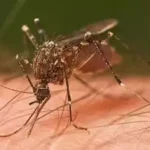The floods in Nigeria have left a trail of destruction and claimed at least 179 lives, while over 200,000 people have been displaced across the country. Heavy rains for weeks finally reached catastrophic levels in urban and rural areas.
According to the National Emergency Management Agency (NEMA), most casualties are from the northern parts of the country. At the same time, however, NEMA spokesperson Ezekiel Manzo warned that central and southern regions could face even worse flooding as the rains continue and water flows south.
Agriculture has been particularly badly hit by the floods, with at least 107,600 hectares of farmland submerged. This has deepened food insecurity in a country where agriculture remains a major livelihood for millions of people. These submerged farmlands translate to local food supplies and the long-term economic impact on farmers who stand to lose crops and income.
Communities along the course of major rivers like the Niger and Benue are at the highest risk. Communities around areas generally prone to flooding in these communities have been complimented by unexpected water levels in a situation that has broken record heights. Other regions of communities not known previously for flooding have also recorded severe water damage, further showing the scale of the disaster.
Beyond the immediate loss of life and agriculture, this flooding has considerably stretched the infrastructure and emergency services. Road and bridge damage, along with building collapses, have made rescue and relief efforts extremely challenging. Many displaced families try to find shelter in temporary campsites and other provided accommodations. However, poor sanitation, restricted access to clean water, and medical attention add further concern.
The government of Nigeria is working with foreign aid agencies to address the current needs of the affected population while making plans for long-term recovery. Its efforts also involve provisions for emergency food, medical, and temporary housing for the displaced persons. However, this disaster will need enormous resources and policy guidelines with coordinated action if further suffering is to be averted and the affected communities are to be supported.
The situation is fluid, with continued rainfall and forecasts that flooding can continue or even worsen. The authorities are closely monitoring the situation. At the same time, efforts are being made to update and implement flood management strategies to better protect vulnerable areas. The response to the crisis will have to address both immediate relief and long-term recovery to ensure resilience among the affected communities and restoration of livelihoods.















